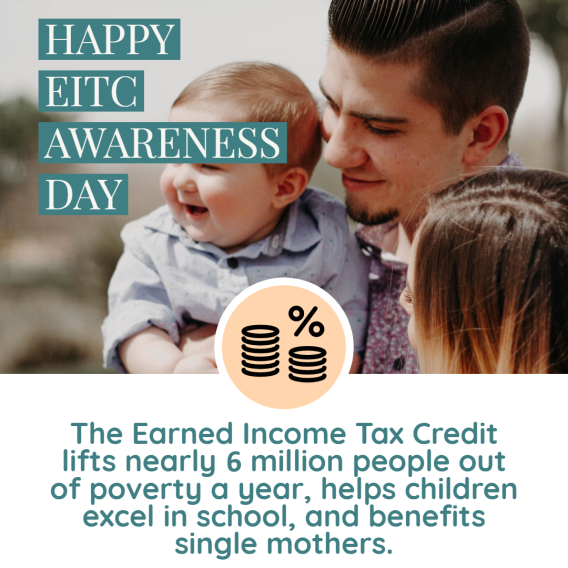
Tax credits can be a useful income boost for adults earning lower wages who do not have children living with them. While workers without kids at home are eligible for a small Earned Income Tax Credit (EITC), some non-custodial parents may be eligible for a significant Child Tax Credit (CTC) if they are permitted by a divorce or separation agreement to claim a child as a dependent. Outreach messages about both tax credits and free tax help are important to share with adults not living with children.
CONNECT WITH
- Transitional housing programs
- Homeless shelters
- Food banks and soup kitchens
- Literacy or GED programs
- Probation offices
- Half-way houses or mental health or substance abuse service centers
- Child Support Enforcement agencies
- Fatherhood Programs
- Veterans Administration hospitals or service centers
STRATEGIES
1. Contact workers who are employed on-and-off.
Reach out to seasonal workers by distributing tax credit informational materials at pick-up and drop-off spots for day labor; hotel, motel, and other service worksites with seasonal employees; General Assistance, SNAP, or unemployment offices; and programs serving migrant workers.

2. Provide tax credit information at child support decisions.
Work with a court to help connect parents to tax credit information when child support details are being set up. Decisions about which parent claims the child as a dependent for tax purposes are often made at this time. Provide parents with information about the CTC while they’re learning about the process for setting up child support.
3. Enlist employers to reach out to their employees.
Employers are well-positioned to hand out tax credit information to their employees. A special note about the availability of the CTC may be of particular interest to non-custodial parents whose child support payments are being deducted from their paycheck.

4. Reach out to workers in school or training programs.
Distribute materials at universities with non-traditional students, community colleges, English as a Second Language or literacy programs, vocational rehabilitation centers, and job training programs.
5. Get information to non-custodial parents.
Work with Child Support Enforcement (IV-D) agencies — which establish and enforce child support orders — to provide non-custodial clients with tax credit information. Fatherhood Programs that help men develop in their role as fathers can also give non-custodial participants tax credit materials. Remind staff to explain that non-custodial parents who are eligible to claim the CTC must submit Form 8332, “Release/Revocation of Release of Claim to Exemption for Child by Custodial Parent,” which requires the custodial parent’s signature, with their tax return and Form 8812.
6. Share information about the 2021 expanded Earned Income Tax Credit.
The 2021 American Rescue Plan included a temporary one-year change to the Earned Income Tax Credit for workers not raising children at home. The 2021 expanded EITC is available to workers not raising children who are 19 and older and worth up to $1,500. Also, youth experiencing homelessness and former foster youth ages 18+ may also qualify.
People who were eligible for the 2021 expanded Earned Income Tax Credit and didn’t claim it can file a 2021 tax return by April 18, 2025. Learn more about filing prior year taxes.
ADDITIONAL RESOURCES
- Veterans Services by State – Department of Veterans Affairs
- Veterans Services Locator – Department of Veterans Affairs
- Soup Kitchen, Food Pantry, & Food Bank Locator – FoodPantries.org
- Homeless Assistance Finder – Department of Housing & Urban Development
- State-Operated Fatherhood Program Finder – National Responsible Fatherhood Clearinghouse
- National Fatherhood Initiative
- Child Support Agency Finder – Office of Child Support Services






